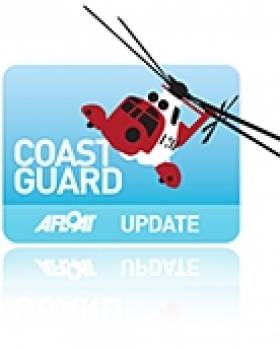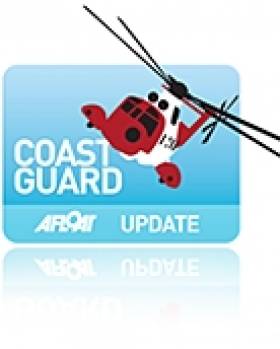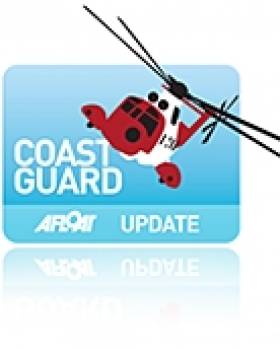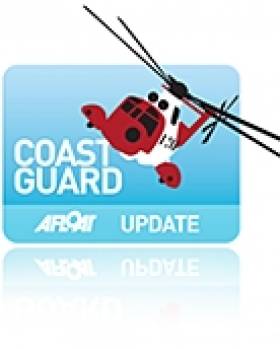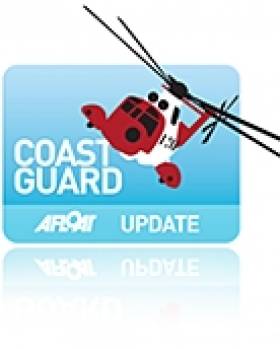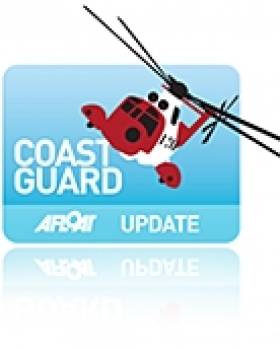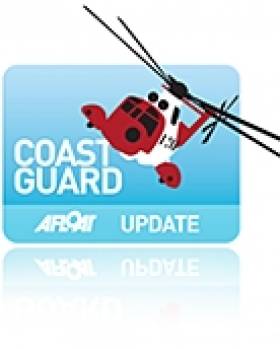Displaying items by tag: Mike Penning
MLA Seeks NI Minister's Support for Malin Head Coastguard
#COASTGUARD - An MLA for East Londonderry has sought the support of Northern Ireland's Minister of State to protect the Irish Coast Guard station at Malin Head from closure.
Inishowen News reports that the SDLP's John Dallat MLA contacted Mike Penning regarding the threat looming over the Donegal coastguard station, which is the most northerly on the island of Ireland.
Dallat said: “When Mike Penning was Minister for Transport in Westminster he was instrumental in keeping the coastguard station at Bangor, Co Down, open, and he made his judgement on the basis that Bangor had a special working relationship with Malin Head which was critical to ensuring there was a complete coverage of all areas."
“It would be ironic now if Malin Head, which saved Bangor, was itself to be victim of closure. That must not happen and I believe Mr Penning’s support is an important element in this campaign which must not fail."
As reported recently on Afloat.ie, coastal communities in both Donegal and Kerry have been protesting plans to close the stations at Malin Head and Valentia in the wake of a 'value for money' report commissioned by the Republic's Minister for Transport Leo Varadkar.
Coastguard chiefs have criticised the studies conducted by consultants Fisher Associates into the IRCG and the Marine Survey Office.
Inishowen News has more on the story HERE.
It's Official - Bangor Coastguard Will Stay Open
#COASTGUARD - The UK's shipping minister has confirmed that Northern Ireland will retain its only coastguard station, the News Letter reports.
Mike Penning made the survival of Bregenz House official at the House of Commons yesterday, marking the end of what has been a successful campaign by the station's supporters.
As previously reported on Afloat.ie, the control centre at Bangor was given a last-minute reprieve by the minister in July under revised proposals to streamline the UK's coastguard network.
Bregenz House will be one of eight stations set to remain following the cutbacks, and one of just three across the whole UK that will have 24-hour service.
However, concerns are still being expressed about the wider area that the Bangor station will now have to cover, with the coastguard workers' union calling for assurances that the "same level of service" will be preserved.
Bangor locals came face-to-face with officials from the UK's Maritime and Coastguard Agency (MCA) over the proposals to close Northern Ireland's only full-time sea rescue base.
The Belfast Telegraph reports that MCA bosses were loudly heckled when they tried to offer justifications for the closure of the Bangor station.
As previously reported on Afloat.ie, the UK's network of coastguard centres will be scaled back to just three 24-hour stations and a handful of daytime-only centres for the whole of Britain and Northern Ireland.
Supporters of the station said they felt let down at the “bad deal” and “shabby” proposals presented by the MCA and Shipping Minister Mike Penning, who added Bangor to the closures list at the last minute.
BBC News reports that more than 100 people attended the meeting in Bangor on Thursday evening, including members of the public, MLAs, councillors and MPs.
Bill McFadyen, the MCA's regional director for Scotland and Northern Ireland, admitted at the meeting that he was not handed a copy of the proposals until after they had been finalised.
He added: "Of course we will still maintain a high level of service here in NI as we move forward in whatever direction comes out of the consultation."
The Belfast Telegraph has more in the story HERE.
Answers Demanded Over Bangor Closure Proposals
Local people will voice their opposition to the proposed closure of Northern Ireland's only coastguard rescue base at a public meeting with the Maritime and Coastguard Agency (MCA) next month, the Belfast Telegraph reports.
Supporters of the Bangor facility, which provides 24-hour cover for the NI coastline, have also demanded "concrete answers" from UK Shipping Minister Mike Penning, who is due to visit the country next week.
“If he comes here with a positive attitude and says the decision to target our Coastguard was wrong, that’s the outcome we’re hoping for," said Strangford MP Jim Shannon. “If not, then he’s got a fight on his hands. We will take this to Westminster if necessary."
MCA representatibes will meet Bangor MLAs and community leaders on 3 March at the Marine Court Hotel to discuss the proposals.
The Belfast Telegraph has more on the story HERE.
Bangor 'Not On Original List' of Coastguard Centre Closures
Northern Ireland’s only coastguard base was not originally among a list of those earmarked for closure, the Belfast Telegraph reports.
However the Bangor facility was added to the list after a "personal intervention" from UK Shipping Minister Mike Penning.
The minister has confirmed to the House of Commons that the original draft list of closures for streamlining the UK's coastguard service originally named Liverpool as the centre to be shut down.
Now the Bangor control centre is being pitted against Liverpool in the service shake-up as previously reported on Afloat.ie that will leave just three full-time coastguard stations across the UK.
Cameron Dodges Issue of Bangor Closure
British Prime Minister has dismissed concerns over the potential loss of Northern Ireland's Coastguard centre.
The Belfast Telegraph reports that when questioned on the future of the Bangor control centre by DUP MP Jim Shannon, David Cameron replied that he understood "the need for good air sea rescue".
“I think what matters is not necessarily who is carrying it out, but are they fully qualified, is it a good service and is it value for money?” he added.
As previously reported on Afloat.ie, the Bangor Coastguard control centre is facing closure under reforms to the service across the UK announced by Shipping Minister Mike Penning.
NI Coastguard Centre Faces Scale Back, Possible Closure
The UK's shipping minister has announced proposals that would see a reduction in operational hours or even the closure of Northern Ireland's coastguard command centre.
Earlier this week news emerged that the rescue command centre at Bangor was under threat by public spending cuts.
Now the News Letter reports that Minister Mike Penning's proposals would see only three 24-hour coastguard stations across the UK - in Aberdeen, Southampton and Dover - with five sub-centres operating in daytime hours, one being based either at Bangor or Liverpool.
Campaigners have voiced their opposition to any reduction in Northern Ireland's local coastguard service. North Down independent MP Lady Sylvia Hermon told the News Letter that it was vital a well trained and equipped service was retained in the area.



























